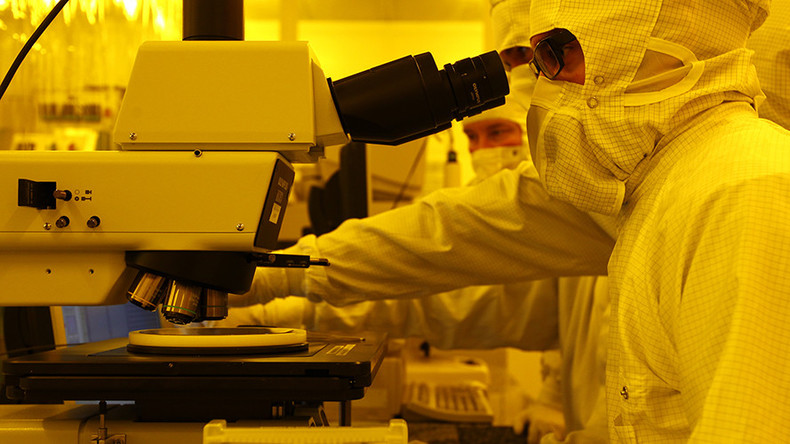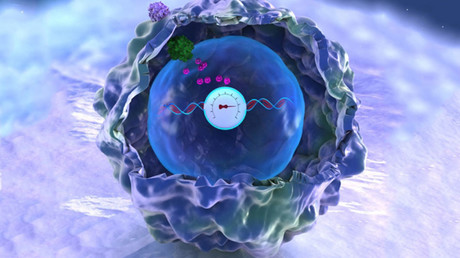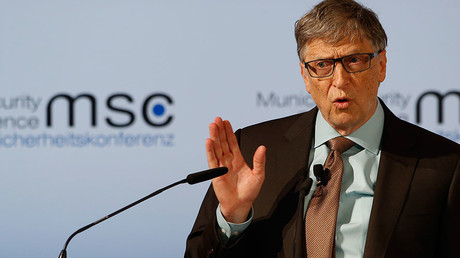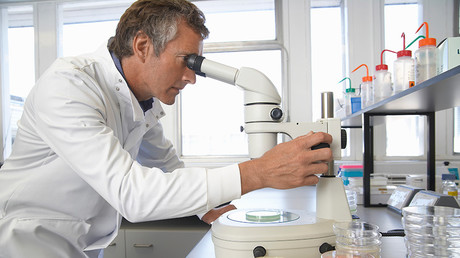
The choice of the Russian population for generic material was not intentional, and is related to research on the musculoskeletal system, the US Air Education and Training Command (AETC) spokesman said.
Eyebrows were first raised in July when the AETC issued a tender seeking to acquire samples of ribonucleic acid (RNA) and synovial fluid from Russians. It announced that all samples (12 RNA and 27 synovial fluid) “shall be collected from Russia and must be Caucasian.” The Air Force noted that it would not consider tissue samples from Ukraine, for reasons not explained.
According to AETC spokesman Capt. Beau Downey, the 59th medical group’s molecular research center is currently conducting “locomotor studies to identify various biomarkers associated with trauma.”
Downey told RIA Novosti that the study required two sets of samples – with disease and control samples of RNA and synovial membrane. The first set was provided by a “US-based company.”
“The request [by the research center] did not specify where the samples should be received from, but to continue the study, similar samples were required. Since the supplier originally provided samples from Russia, suitable for the initial group of diseases, the control group of the samples should also be of Russian origin,” he said. “The goal is the integrity of the study, not the origin [of the samples].”
Russian President Vladimir Putin said on Monday that Russian genetic material is being harvested all over the country. “Do you know that biological material is being collected all over the country, from different ethnic groups and people living in different geographical regions of the Russian Federation? The question is – why is it being done? It’s being done purposefully and professionally. We are a kind of object of great interest,” Putin told Russia’s Human Rights Council, without specifying who might be behind the activities involving Russians’ biological samples. “Let them do what they want, and we must do what we must,” he said.
The fact that Russian tissue samples specifically are on the wanted list made some wonder whether the Pentagon is working on a biological weapon to target Russians. “I’m not saying that it is about preparing a biological war against Russia. But its scenarios, are, no doubt, being worked on. That is to say, in case the need suddenly arises,” Franz Klintsevich, the first deputy chairman of the Federation Council’s Committee for Defense and Security, wrote on Facebook. “It is also no secret that different ethnic groups react differently to biological weapons. Hence the collection of the biological material from Russians living in different geographical locations. In the west, everything is done extremely scrupulously and is verified up to the tiniest detail.”
Kremlin spokesman Dmitry Peskov confirmed on Tuesday that Russian special services are in possession of intelligence suggesting that NGOs are collecting genetic material from the population. “Some emissaries are really carrying out such activities, representatives of Non-Governmental Organizations (NGOs) and other bodies. Such cases were registered, and security services, the president naturally have this information,” he said.
This is not the first attempt to collect samples of Russian genetic material by foreign agencies in Russia, Igor Nikulin, a former member of the UN biological weapons commission, told RT.
“Such attempts were made back in the 90s, when there was a Human Genome program, then there were various programs in the 2000s too… under different pretexts, including the most noble, but for some reason all this happens in the interests of the US military department, and this raises suspicion,” Nikulin said.
He noted that, as a rule, “samples of Europeans of the Slavic group, mostly Russians” are sought-after. “Blood samples are taken for analysis, and if an organization is foreign, what they are doing with the results is always unknown,” he said.




0 Comments:
Post a Comment
Subscribe to Post Comments [Atom]
<< Home